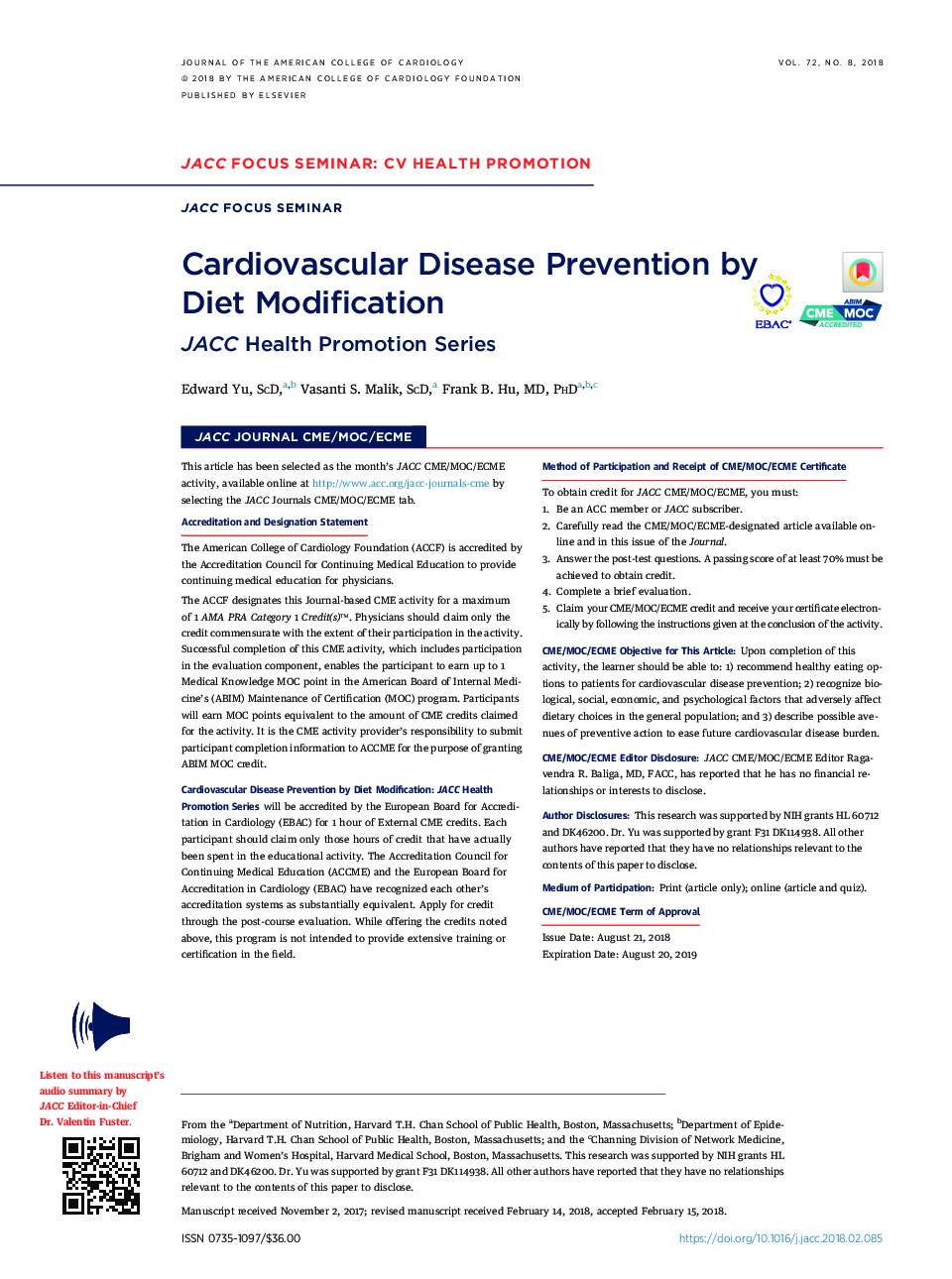| Article ID | Journal | Published Year | Pages | File Type |
|---|---|---|---|---|
| 8665782 | Journal of the American College of Cardiology | 2018 | 13 Pages |
Abstract
Reduction in excess calories and improvement in dietary composition may prevent many primary and secondary cardiovascular events. Current guidelines recommend diets high in fruits, vegetables, whole grains, nuts, and legumes; moderate in low-fat dairy and seafood; and low in processed meats, sugar-sweetened beverages, refined grains, and sodium. Supplementation can be useful for some people but cannot replace a good diet. Factors that influence individuals to consume a low-quality diet are myriad and include lack of knowledge, lack of availability, high cost, time scarcity, social and cultural norms, marketing of poor-quality foods, and palatability. Governments should focus on cardiovascular disease as a global threat and enact policies that will reach all levels of society and create a food environment wherein healthy foods are accessible, affordable, and desirable. Health professionals should be proficient in basic nutritional knowledge to promote a sustainable pattern of healthful eating for cardiovascular disease prevention for both healthy individuals and those at higher risk.
Keywords
Related Topics
Health Sciences
Medicine and Dentistry
Cardiology and Cardiovascular Medicine
Authors
Edward ScD, Vasanti S. ScD, Frank B. MD, PhD,
